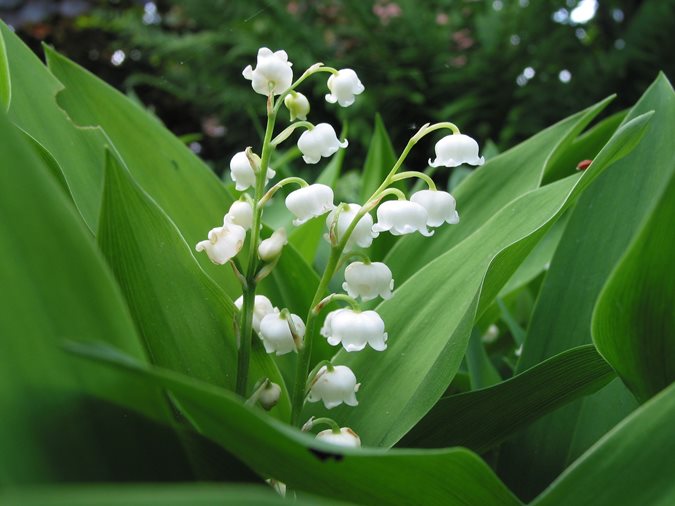Parker Palmer Muses on the Season

From Fetzer' Institute's blog:
Each year, as spring begins, we share a reflection on the season by Parker Palmer. In 1995 Parker wrote a welcome for the Fetzer Institute's newly built retreat center, Seasons, which included a reflection on each of the four seasons. Here we excerpt his musings on spring in the Upper Midwest where he lives and where the Fetzer Institute is located. While the seasons may differ in your part of the world and the movement of Parker’s "inner seasons" may be quite unlike your own, we offer his reflections in the hope that you might be encouraged to explore the seasons of your own life and work.
I will wax romantic about spring and its splendors in a moment, but first there is a hard truth to be told: before spring becomes beautiful, it is plug ugly, nothing but mud and muck. I have walked in the early spring through fields that will suck your boots off, a world so wet and woeful it makes you yearn for the return of ice. But in that muddy mess, the conditions for rebirth are being created.
I love the fact that the word “humus”–the decayed vegetable matter that feeds the roots of plants–comes from the same word root that gives rise to the word “humility.” It is a blessed etymology. It helps me understand that the humiliating events of life, the events that leave “mud on my face” or that “make my name mud,” may create the fertile soil in which something new can grow.
Though spring begins slowly and tentatively, it grows with a tenacity that never fails to touch me. The smallest and most tender shoots insist on having their way, coming up through ground that looked, only a few weeks earlier, as if it would never grow anything again. The crocuses and snowdrops do not bloom for long. But their mere appearance, however brief, is always a harbinger of hope, and from those small beginnings, hope grows at a geometric rate. The days get longer, the winds get warmer, and the world grows green again.
In my own life, as my winters segue into spring, I not only find it hard to cope with mud but hard to credit the small harbingers of larger life to come, hard to hope until the outcome is secure. Spring teaches me to look more carefully for the green stems of possibility: for the intuitive hunch that may turn into a larger insight, for the glance or touch that may thaw a frozen relationship, for the stranger’s act of kindness that makes the world seem hospitable again.
Spring in its fullness is not easy to write about. Late spring is so flamboyant that it caricatures itself, which is why it has long been the province of poets with more passion than skill. But perhaps those poets have a point. Perhaps we are meant to yield to this flamboyance, to understand that life is not always to be measured and meted as winter compels us to do but to be spent from time to time in a riot of color and growth.
Late spring is potlatch time in the natural world, a great giveaway of blooming beyond all necessity and reason – done, it would appear, for no reason other than the sheer joy of it. The gift of life, which seemed to be withdrawn in winter, has been given once again, and nature, rather than hoarding it, gives it all away. There is another paradox here, known in all the wisdom traditions: if you receive a gift, you keep it alive not by clinging to it but by passing it along.
Of course, the realists will tell us that nature’s profligacy always has some practical function, and that may well be so. But ever since I read Annie Dillard on the immoderation of trees, I have had to wonder. She begins with a mental exercise to help us understand how superfluous in design an ordinary tree can be – if you doubt it, she suggests, try to make a faithful scale model of the next tree you see. Then, taunting the realists, she writes:
You are God. You want to make a forest, something to hold the soil, lock up solar energy, and give off oxygen. Wouldn’t it be simpler just to rough in a slab of chemicals, a green acre of goo?
From autumn’s profligate seedings to the great spring giveaway, nature teaches a steady lesson: if we want to save our lives, we cannot cling to them but must spend them with abandon. When we are obsessed with bottom lines and productivity, with efficiency of time and motion, with the rational relation of means and ends, with projecting reasonable goals and making a beeline toward them, it seems unlikely that our work will ever bear full fruit, unlikely that we will ever know the fullness of spring in our lives.
And where in the world did we get that “beeline” metaphor? Just watch the bees work in the spring. They flit all over the place, flirting with both the flowers and their fates. Obviously, the bees are practical and productive, but no science can persuade me that they are not pleasuring themselves as well.
Syndicated from The Fetzer Institute, a non-profit dedicated to helping build the spiritual foundation for a loving world.


On Mar 21, 2021 Kristin Pedemonti wrote:
Still a perennial favorite 💜🌺🌸
1 reply: | Post Your Reply